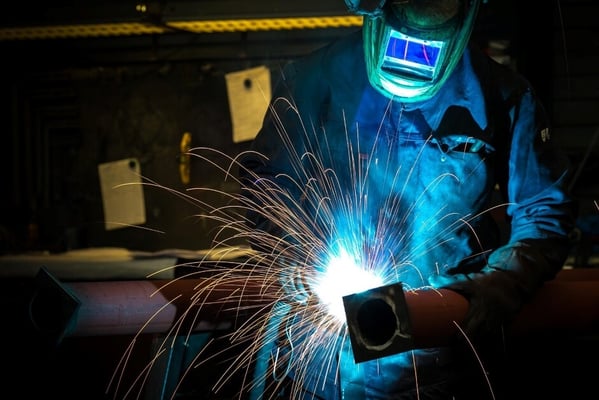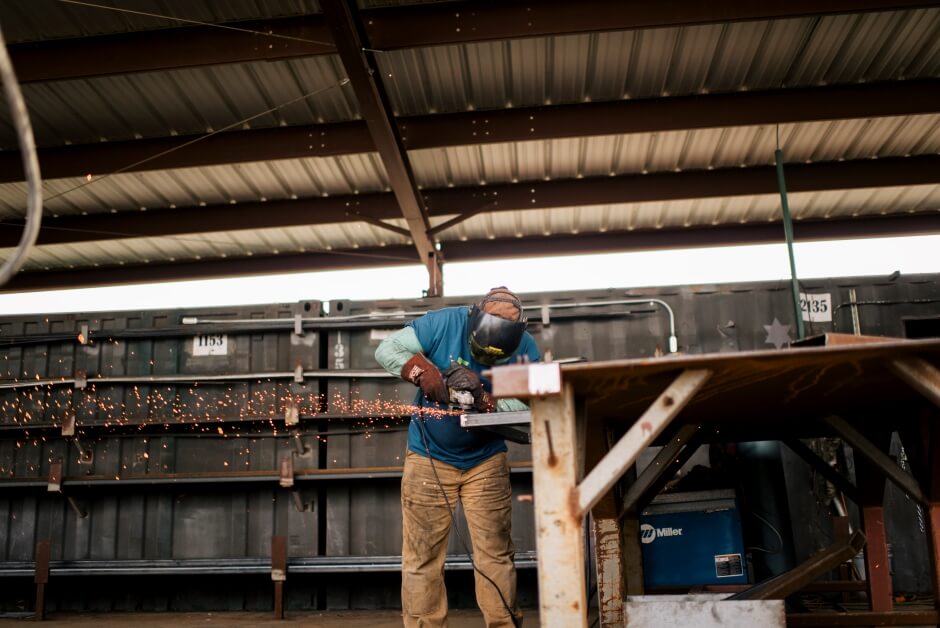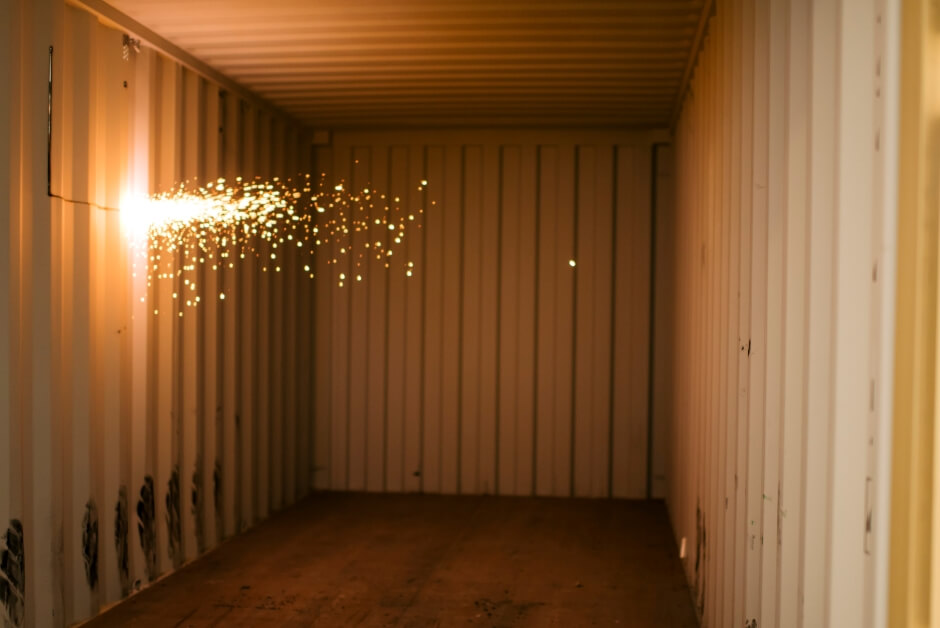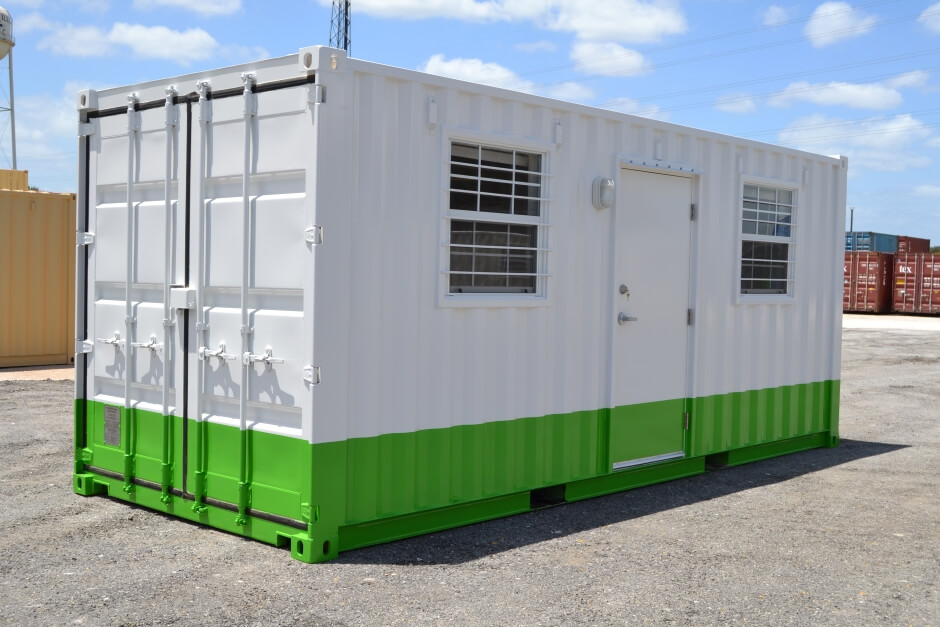The Importance of Precise Modified Shipping Container Fabrication and Welding
 Marissa Morin | May 18, 2022
Marissa Morin | May 18, 2022

Shipping container modification manufacturing is on the rise. Therefore, it's important that the world knows container-based construction is safe—neither more nor less safe than traditional construction. Although—like any build—to maximize safety, manufacturers must prioritize precise shipping container fabrication. Above all else, manufacturers must use proper technique and practices for welding, cutting, and other modification components of shipping container fabrication.
Welding as Part of Shipping Container Fabrication

Welding is a vital component of shipping container modifications because containers are made entirely of corten steel (excluding the interior wood flooring). For modification manufacturing teams to make any alterations to a basic container, a welder must get involved.
In most cases, a manufacturing team cuts into the sides of a container to create the spaces for added doors, windows, air conditioning units, and more. Then, welders add metal frames to easily place the necessary modifications into the unit. Welded frames reinforce the container walls structurally—a vital addition once a container is manipulated with cuts. Carpenters later install interior framing for insulation in container-based offices and living spaces, and electricians and plumbers complete the necessary tasks to finish modifying the units.
The Threat of Bad Welding
Not only do bad welds make for eyesores, but they pose a threat to the structural safety of shipping container fabrication. Often, a poor welding job results in cracking at the welded point. Other times, a less-than-perfect weld might not fully adhere to the base metal.
Knowledgeable and experienced welders remain observant to prevent welding mistakes. For example, unwanted particles can get trapped inside a weld, such as gas bubbles (known as porosity or wormhole welds) or impurities (known as inclusions). Other welds can result in poor penetration or a lack of fusion to the base metal or container. So, when a window or door frame isn’t well bonded to the container structure it creates an unsafe and unstable adhesion.
Experience + Expertise = Safety

Working with a modification team experienced in shipping container fabrication makes a monumental difference in the quality of your final product. Only container experts know enough to advise on which design choices might alter the integrity of a container. They will prevent you from making a design mistake that could cause you to later repair or redo.
We recommend looking for a container manufacturer that’s experienced in creating safe and well-functioning container units. Many top-rated shipping container fabrication manufacturers hold an ICC-ESR certification to repurpose AC462 compliant shipping containers. State modular manufacturing certifications signal that the container fabrication company’s building practices are approved by that state.
If you’d like to get in touch with us here at Falcon Structures, don’t hesitate to reach out. Give us a call at 512-231-1010 or email us at Sales@FalconStructures.com. Let’s talk about all things modified shipping container!
SUBSCRIBE
- Shipping Container Modifications
- How-Tos
- Workspace
- Commercial Construction
- Multi-Container Buildings
- Storage Solutions
- Industrial Enclosures
- Bathrooms & Locker Rooms
- Oil & Gas
- Climate Control
- Green Building
- Industry Insight
- Living Space
- Military & Training Facilities
- Water Treatment Solutions
- Energy
THINK INSIDE THE BOX®
WITH OUR BLOG
Get everything from shipping container basics, to detailed how-tos and industry news in our weekly blog. Stay inspired and subscribe!
RELATED BLOGS

20 Things We Love About Falcon: 20th Anniversary Edition
Marissa Morin | Feb 8, 2023 | 5 min read
READ MORE
Shipping Container Insurance: How to Protect Your Jobsite Office
Marissa Morin | May 17, 2023 | 3 min read
READ MORE

How Environmentally Sustainable are Shipping Containers?
Marissa Morin | Jun 22, 2022 | 3 min read
READ MORE
